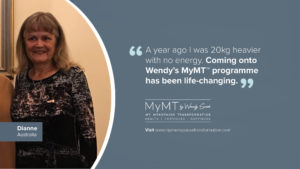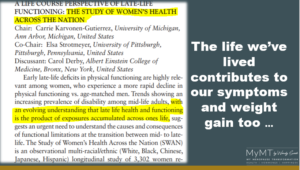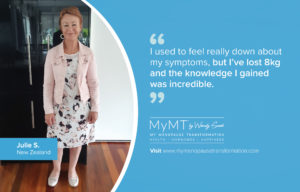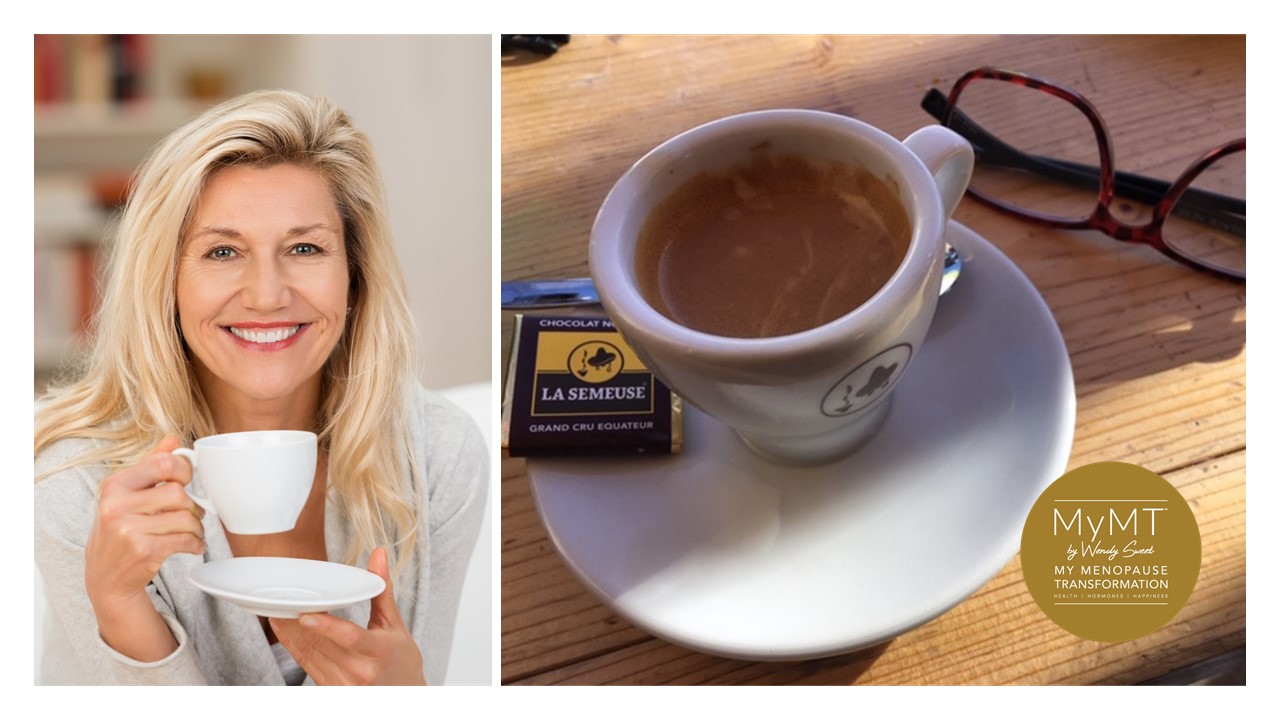When did you have your first cup? Do you remember? I do. It was in the early 1980’s. Someone had purchased a flash new coffee filter machine for the ICU staff room. Thinking back, maybe it was our wonderful new American Charge Nurse. She got most of us young nurses up to speed with ‘things that really mattered in life’ – like good quality coffee … the filtered kind. Night duty was when I remember enjoying it the most. Sipping on a coffee whilst looking after patients, the cup used to be plonked on top of the ventilator. I know that wouldn’t happen now.
Coffee and tea consumption has been a part of my life for decades. Are you the same? I enjoyed a cup in the morning when the kids were young. It’s appeared in my sports science and nutrition lectures (it’s a recognised ergogenic aid for performance), it’s appeared in my weight loss lectures for Personal Trainers (it’s a recognised fat-mobiliser) and when the cafe culture arrived just down the hill from the famous Les Mills World of Fitness where I worked at the time, a good quality coffee took the edge off the stress of work. These days talking about coffee also appears in the My Menopause Transformation programme information because, simply put, stopping to have a coffee or tea throughout our day, helps us to cope with all that life throws at us. Just try not to have the sugar. That cuppa not only helps us to relax but the anti-oxidants are pretty good for us too. Whilst too much coffee can contribute to increased anxiety in women who are transitioning through menopause because the caffeine stimulates our adrenal and thyroid organs making those more sensitive to caffeine feel a bit wired’, new research shows that the ubiquitous Kiwi ‘flat white’ or ‘long black’ or ‘long macchiato’ (my favourite) coffee in small amounts is not only good for connecting us with community, but good for our heart as well.
I used to turn my back on lifestyle programmes and diets that mentioned not to have coffee. Because for most of my life, it hasn’t been about the coffee. It’s been about enjoying the cafe-culture and having someone else (the wonderful barrista’s I’ve met around the world) make me a creamy, smooth, perfectly brewed coffee that becomes my companion as I put the crazy world aside and do my writing, researching and reading. Not being able to visit my favourite cafe, was one of the ‘things’ I missed most about being in lock-down. I missed my barristas. Then today, with the new research that has just arrived in my in-box, I even lingered a little longer and ordered a second cup.

The news that Parisian culture is returning to normal and so is New Zealand’s, made me want to share this new research with you. For too long, women in mid-life who are turning to dietary and exercise advice are told to ‘give-up’ coffee and tea. I would argue that these people doing the recommendation don’t know the healthy ageing research or sports science research about the role of caffeine. With this new research just out this week exploring LIFE-LONG coffee and tea consumption on men and women’s cardiac health as they age, you won’t get the advice from me to refrain from coffee and tea either. In fact, many women coming onto my programmes are ecstatic that I’m not going to tell them to give up coffee – although they do get advice on the time of day which is better suited to have coffee. You can’t have it after 2pm. Caffeine has been researched in sleep studies to stay in our system for 6 hours, so additional caffeine may keep you awake. And getting a full nights sleep is the priority problem I aim to help women with in both the MyMT programmes, especially those wanting to lose weight.

I love a good research study just as much as I do a good cup of coffee. And thanks to a study with collaboration between researchers at John Hopkins University and the National Institute of Health and the National Heart, Lung and Blood Institute, I now know that the limit on caffeine conusumption (mainly from coffee) is 3 cups a day (not that I have that many, but I used to). My only advice to women on the programme is to try and minimise the milk content. We want to reduce milk intake when we are trying to turn around inflammation, because it’s not about the protein, it’s about all the milk sugars and additional hormones in the milk. I talk about this in the MyMT™ programmes. [Don’t forget that my savings that I’ve had during lockdown finish at the end of June, 2020 (making them NZ$199/ AUS$184/ UK£102 which is NZ$100 off). The programmes differ depending on menopause weight loss or symptom management. Learn More here …

As the first generation of women to arrive in mid-life in the context of all the societal changes that have influenced our dietary intake over the decades, having research on coffee and tea intake and it’s effect on cardiac health is important.
I used to worry about the long-term effect of my caffeine consumption. Especially when it came to my heart health. I’ve mentioned in numerous posts that having a focus on our cardiac health as we move through menopause is crucial. Women in post-menopause are the highest demographic to develop heart disease as they age in many western countries globally. [Read my previous article about magnesium intake and heart health HERE]. So thank you to the researchers who explored how coffee and tea consumption in the early adult lifespan affects the function of the heart in middle age. My summary and the reference to the full article is below.
The study is called the CARDIA study which stands for Coronary Artery Risk Development in Young Adults. This research has been going on for decades but what interested me was that the researchers explored total caffeine intake (tea and coffee consumption) when participants were around 25 years old in 1985/86 – about the same time that I began to enjoy having coffee (I was already a tea drinker from about my late teens I think!). The participants were followed up at the 7 year and 20 year mark and most importantly, 58% of them were women. Here’s what was found:
- Drinking 3-4 cups of coffee is associated with improved left ventricular (LV) function in mid-life. It was noted that this study was undertaken in America and therefore, the cups are around 2 times larger than in Europe.
- Drinking over 4 cups of coffee daily is associated with worsening LV function in mid-life.
- Drinking tea is not a problem (especially green tea).
- Coffee contains biologically active substances such as flavonoids (antioxidant compounds that help to reduce inflammation), diterpenes (cholesterol raising substances) and melanoidins (naturally occuring carbohydrates and proteins found in coffee beans) and it is the combination of these substances that increase nitric oxide production. I’ve written about how important nitric oxide is for women as they age to help dilate blood vessels, which become ‘stiffer’ as we lose oestrogen. The odd cup of coffee helps to reduce this arterial stiffness – just don’t have too much!
- Whilst short-term increases in blood pressure may occur following caffeine intake, the researchers also found that this was not translated into long term risk for hypertension (high blood pressure).

Menopause is the gateway to our biological ageing, hence, positioning this time of life in ageing studies is important. So too is understanding that many of our symptoms occur because of our life-time exposure to various stresses, including emotional stress and oxidative stress from doing too much exercise, or becoming overweight. Using scientific lifestyle research that’s been undertaken on mid-life women (not men or younger people) was important for me to navigate my own menopause symptoms and weight. So, too was looking at menopause through the lens of ageing and through the lens of the life-course. It’s also why sharing this research about coffee and tea consumption was important to me. Because I know how much many of us just like to sit down in a nice little cafe and have someone bring us a cuppa instead of having to make it ourselves.

I hope one day you can join me in the MyMT™ community on either of my 12 week programmes. What you will learn to reduce your symptoms and/or your weight might just astound you.

Dr Wendy Sweet (PhD)/ Member: Australasian Society of Lifestyle Medicine.
Reference:
Nwabuo, C., Betoko, A., Reis, J., Moreira, H …. Lima, J. (2020). Coffee and tea consumption in the early adult lifespan and left ventricular function in middle age: the CARDIA study. ESC Heart Failure, Wiley Online Library.


